My time at Rockford Behavioral was the most traumatic and uncomfortable I've ever been in a behavioral center. The night staff there was far from helpful or understanding, they would constantly play loud music that kept most other patients awake. They also spoke about the pa ...
About Rockford Center
The facility is safe, relaxing and welcoming. It is just the ideal environment for inpatient care. Each client has a semi-private room with access to an enclosed outdoor courtyard. The program involves individualized treatment planning. This tailors recovery to your unique needs. They mainly focus on clients affected by alcoholism and opioid use disorders.
The core service is medical detox using proven techniques like medication assisted treatment. Detox involves assessment, stabilization and round the clock supervision by trained physicians. These experts may also offer medication assisted treatment if that’s part of your individualized treatment plan. This technique combines FDA approved medicine and counseling to treat opioid use disorders. Medicines like buprenorphine are used to minimize withdrawal symptoms and curb cravings. That way you can undergo group, individual and family therapy safely.
Therapy helps you to uncover the root causes of your opioid use, develop relevant coping mechanisms and build self esteem. You’ll also learn how to maintain healthy relationships in your home and social lives. They also offer expressive therapies like art, music and movement sessions.
This fosters ‘whole person’ healing that addresses the physical, emotional and spiritual aspects of addiction. You’ll also participate in daily psychoeducation sessions to learn about addiction, mental health and the potential recovery pathways. Other program components are psychosocial assessments, psychological testing as well as psychiatric evaluation and medication stabilization.
Their dual diagnosis treatment combines the 12 step approach with addiction education, relapse prevention and stress management strategy. This program component is not very different from the substance use disorder treatment. However, the therapy sessions are typically overseen by experts in co-occurring treatment.
Much emphasis is also placed on family as they relate to relapse and recovery. All the programs involve personalized discharge planning and aftercare support. This may include referral to their outpatient care or peer support group for continuous recovery. They may also connect you to community resources like housing, employment and educational programs.
Facility Overview
Latest Reviews
Rehab Score
Gallery
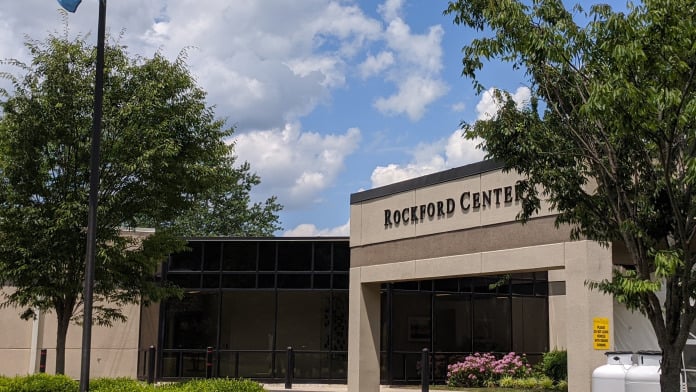
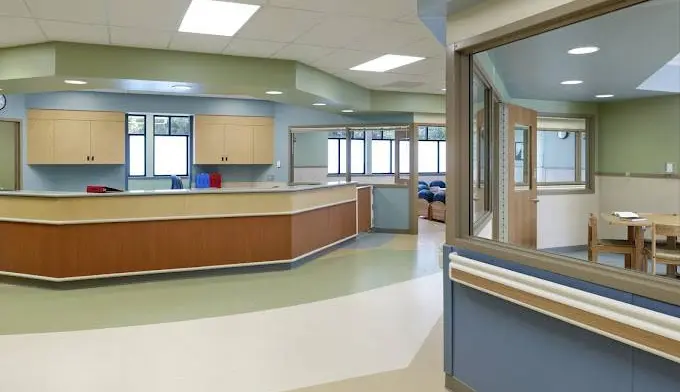
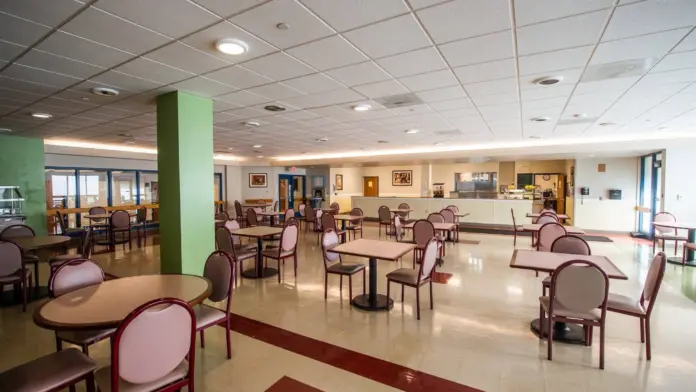
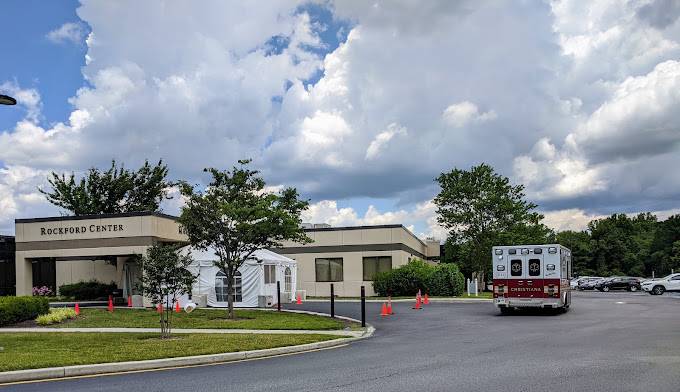
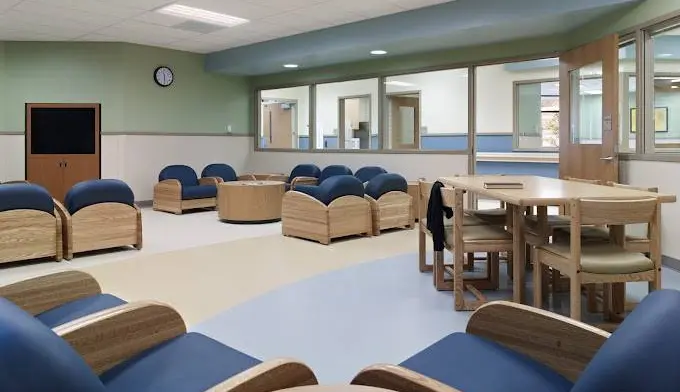
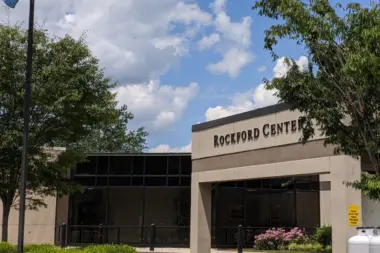
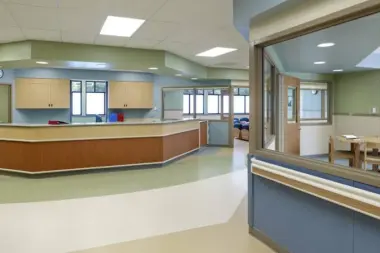
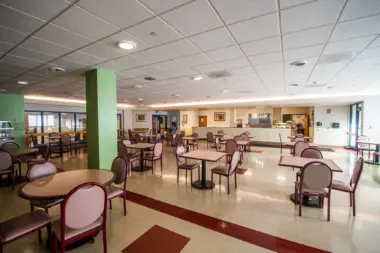
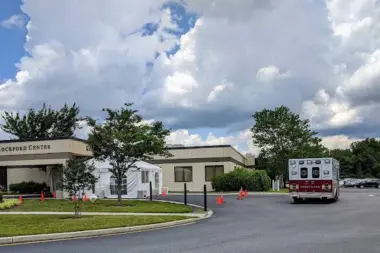
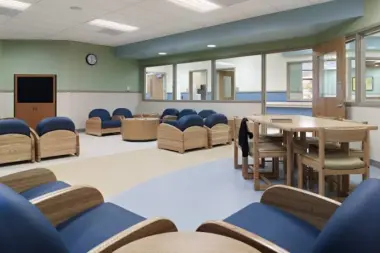
Other Forms of Payment
Private insurance refers to any kind of healthcare coverage that isn't from the state or federal government. This includes individual and family plans offered by an employer or purchased from the Insurance Marketplace. Every plan will have different requirements and out of pocket costs so be sure to get the full details before you start treatment.
Self-pay involves paying for treatment out of your own pocket. You can use savings or credit, get a personal loan, or receive help from family and friends to fund your treatment. If you don't have insurance or your insurance plan doesn't cover a specific program, self-pay can help ensure you still get the care you need.
Financial aid can take many forms. Centers may have grants or scholarships available to clients who meet eligibility requirements. Programs that receive SAMHSA grants may have financial aid available for those who need treatment as well. Grants and scholarships can help you pai for treatment without having to repay.
Medicare is a federal program that provides health insurance for those 65 and older. It also serves people under 65 with chronic and disabling health challenges. To use Medicare for addiction treatment you need to find a program that accepts Medicare and is in network with your plan. Out of pocket costs and preauthorization requirements vary, so always check with your provider.
Medicaid is a state based program that helps lower-income individuals and families pay for healthcare. Medicaid covers addiction treatment so those enrolled can use their coverage to pay for rehab. When a program accepts Medicaid the client often pays very little or nothing out of their own pocket.
Military members, veterans, and eligible dependents have access to specific insurance programs that help them get the care they need. TRICARE and VA insurance can help you access low cost or no cost addiction and mental health treatment. Programs that accept military insurance often have targeted treatment focused on the unique challenges military members, veterans, and their families face.
Addiction Treatments
Levels of Care
Outpatient Programs (OP) are for those seeking mental rehab or drug rehab, but who also stay at home every night. The main difference between outpatient treatment (OP) and intensive outpatient treatment (IOP) lies in the amount of hours the patient spends at the facility. Most of the time an outpatient program is designed for someone who has completed an inpatient stay and is looking to continue their growth in recovery. Outpatient is not meant to be the starting point, it is commonly referred to as aftercare.
Inpatient rehabs offer the structure and support that clients exiting detox, those in early recovery, and those in crisis often need. They provide housing and meals, enable clients to escape home and workplace stressors and focus solely on recovery. Clients engage in intensive psychotherapy, which may include group and family counseling. Inpatient treatment is also designed to prepare clients for outpatient care, which typically involves recovery-focused life skills training. Holistic therapies are widely available.
Intensive Outpatient Programs (IOP) are for those who want or need a very structured treatment program but who also wish to live at home and continue with certain responsibilities (such as work or school). IOP substance abuse treatment programs vary in duration and intensity, and certain outpatient rehab centers will offer individualized treatment programs.
Clients receiving services in a rehab aftercare program have typically completed detox or an inpatient treatment program. Aftercare programs provide customized, wraparound care to support recovery as a life-long process. Case managers, the recovery care team, and the client work together to identify and access services the client needs in order to support sustained sobriety.
12-step programs are addiction recovery models based on Alcoholics Anonymous (AA). A number of substance abuse programs (including some drug and alcohol rehab centers) use the 12 steps as a basis for treatment. Beginning steps involve admitting powerlessness over the addiction and creating a spiritual basis for recovery. Middle steps including making direct amends to those who've been hurt by the addiction, and the final step is to assist others in addiction recovery in the same way. 12-Step offshoots including Narcotics Anonymous (NA), Cocaine Anonymous (CA), Dual Recovery Anonymous (DRA), Sex and Love Addicts Anonymous (SLAA) and Gamblers Anonymous (GA).
It's appropriate to organize a drug intervention in Delaware when a person cannot stop using drugs or alcohol or when their substance abuse is causing physical harm. Intervention services can provide a professional who helps the individual understand the damage they are doing to themselves and their loved ones. This expert can explain how treatment works from the clinical perspective and help the individual see how rehab could be beneficial.
Offering an intensive form of rehab tailored to those who don't need 24-hour care, a partial hospitalization program (PHP) is ideal for serious addiction disorders that may not fully respond to regular outpatient therapy. PHP can serve as an alternative to inpatient hospitalization or as a step-down option and is often fully covered by insurance. With daily sessions lasting six to eight hours, up to five days a week, PHP treatment can provide medication management, relapse prevention strategies, and behavioral therapy interventions.
Round-the-clock medical care is provided during medically supervised detox. This 24-hour clinical care in Delaware serves three main purposes. First, medical staff provide treatment to curb the effects of withdrawal, which range from uncomfortable to life-threatening. Second, the detox process minimizes substance dependence by clearing the body of addictive substances. Third, this supervised process prepares the individual for further rehab treatment.
Since quitting your drug of choice cold turkey can be uncomfortable (and even dangerous), a medically assisted detox is typically suggested. It takes place in an inpatient setting, where clinical staff can monitor your vitals, provide medications if necessary, and keep you as safe and comfortable as possible throughout the process.
Treatments
Many of those suffering from addiction also suffer from mental or emotional illnesses like schizophrenia, bipolar disorder, depression, or anxiety disorders. Rehab and other substance abuse facilities treating those with a dual diagnosis or co-occurring disorder administer psychiatric treatment to address the person's mental health issue in addition to drug and alcohol rehabilitation.
Mental health rehabs focus on helping individuals recover from mental illnesses like bipolar disorder, clinical depression, anxiety disorders, schizophrenia, and more. Mental health professionals at these facilities are trained to understand and treat mental health issues, both in individual and group settings.
Programs
Adult rehab programs include therapies tailored to each client's specific needs, goals, and recovery progress. They are tailored to the specific challenges adult clients may face, including family and work pressures and commitments. From inpatient and residential treatment to various levels of outpatient services, there are many options available. Some facilities also help adults work through co-occurring conditions, like anxiety, that can accompany addiction.
Young adulthood can be an exciting, yet difficult, time of transition. Individuals in their late teens to mid-20s face unique stressors related to school, jobs, families, and social circles, which can lead to a rise in substance use. Rehab centers with dedicated young adult programs will include activities and amenities that cater to this age group, with an emphasis on specialized counseling, peer socialization, and ongoing aftercare.
Serving in the military is both mentally and physically challenging, and can result in trauma that persists even after combat ends. Military programs are tailored to the specific and often complex needs of active duty personnel, veterans, and military families. Clients often access these programs through the U.S. Department of Veterans Affairs (VA).
Clinical Services
Cognitive Behavioral Therapy (CBT) is a therapy modality that focuses on the relationship between one's thoughts, feelings, and behaviors. It is used to establish and allow for healthy responses to thoughts and feelings (instead of unhealthy responses, like using drugs or alcohol). CBT has been proven effective for recovering addicts of all kinds, and is used to strengthen a patient's own self-awareness and ability to self-regulate. CBT allows individuals to monitor their own emotional state, become more adept at communicating with others, and manage stress without needing to engage in substance abuse.
Group therapy is any therapeutic work that happens in a group (not one-on-one). There are a number of different group therapy modalities, including support groups, experiential therapy, psycho-education, and more. Group therapy involves treatment as well as processing interaction between group members.
In individual therapy, a patient meets one-on-one with a trained psychologist or counselor. Therapy is a pivotal part of effective substance abuse treatment, as it often covers root causes of addiction, including challenges faced by the patient in their social, family, and work/school life.
Trauma therapy addresses traumatic incidents from a client's past that are likely affecting their present-day experience. Trauma is often one of the primary triggers and potential causes of addiction, and can stem from child sexual abuse, domestic violence, having a parent with a mental illness, losing one or both parents at a young age, teenage or adult sexual assault, or any number of other factors. The purpose of trauma therapy is to allow a patient to process trauma and move through and past it, with the help of trained and compassionate mental health professionals.
Research clearly demonstrates that recovery is far more successful and sustainable when loved ones like family members participate in rehab and substance abuse treatment. Genetic factors may be at play when it comes to drug and alcohol addiction, as well as mental health issues. Family dynamics often play a critical role in addiction triggers, and if properly educated, family members can be a strong source of support when it comes to rehabilitation.
Life skills trainings involve all the skills a person must have in order to function successfully in the world. These include time management, career guidance, money management, and effective communication. Truly successful addiction recovery is based on the ability to not only live substance-free, but to thrive. Life skills teaches the practical necessities of functioning in society, which sets clients up for success in life, and therefore sobriety.
Nutrition therapy, aka medical nutrition therapy (MNT), is a way of treating physical, emotional, and medical conditions through diet. Specific dietary plans are designed by professional nutritionists or registered dietitians, and patients follow them in order to positively affect their physical and mental health.
Amenities
-
Residential Setting
-
Private Rooms
Staff & Accreditations
Staff

Saurabh Gupta, MD
Medical Director
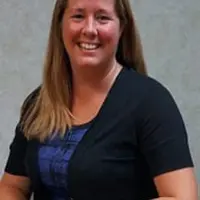
Liz Proctor
COO
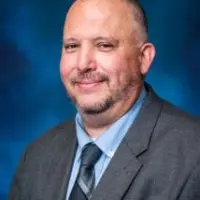
Robert Gailey
Director of Risk Assessment & Quality Assurance

Erin Exelby
Director Business Development
Accreditations

State Licenses are permits issued by government agencies that allow rehab organizations to conduct business legally within a certain geographical area. Typically, the kind of program a rehab facility offers, along with its physical location, determines which licenses are required to operate legally.
State License: Delaware

The Joint Commission, formerly known as JCAHO, is a nonprofit organization that accredits rehab organizations and programs. Founded in 1951, the Joint Commision's mission is to improve the quality of patient care and demonstrating the quality of patient care.
Joint Commission Accreditation: Yes
Contact Information
100 Rockford Drive
Newark DE, 19713